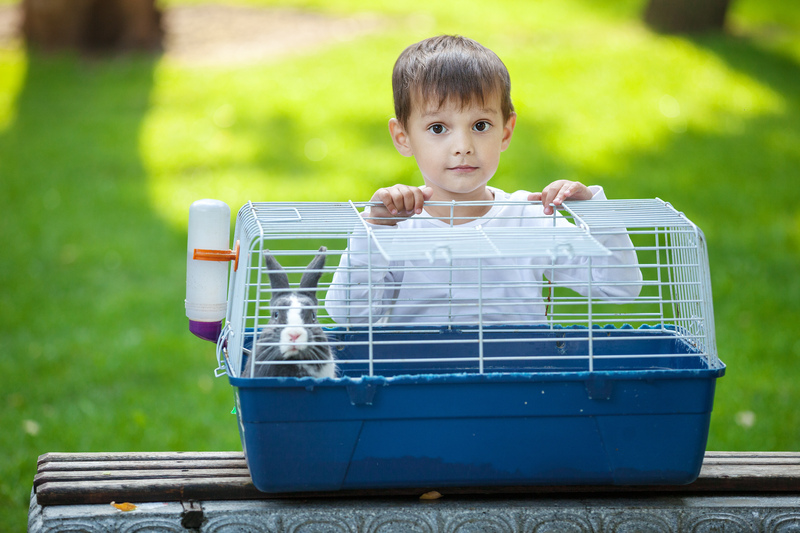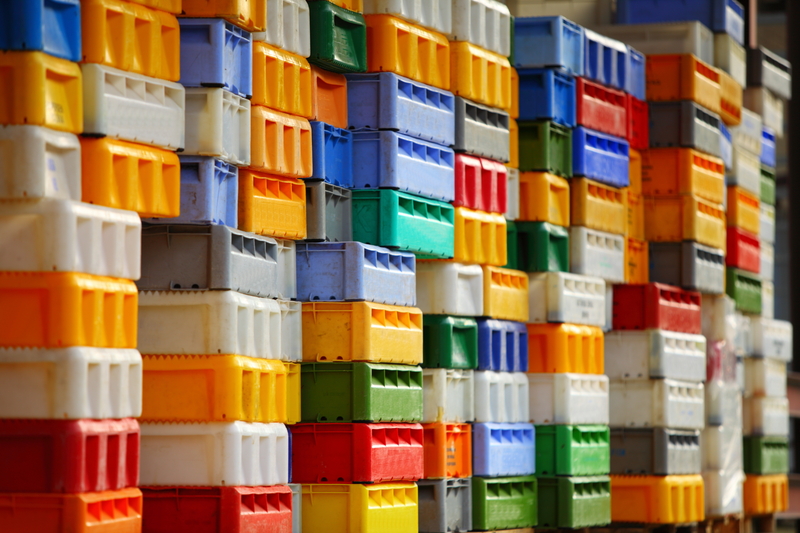Ultimate Guide to Packing Smartly When Relocating
Posted on 19/05/2025
Ultimate Guide to Packing Smartly When Relocating
Are you gearing up for a move and feeling overwhelmed by the sheer thought of packing your entire life into boxes? You're not alone. Packing smartly when relocating can make the difference between a chaotic, stressful move and a smooth transition to your new home. In this comprehensive relocation packing guide, you'll discover proven strategies, innovative packing hacks, and expert advice on streamlining the process. Let's dive deep into the art of smart packing for moving and ensure your next relocation is organized, efficient, and even enjoyable!
Why Smart Packing Matters During Relocation
Packing is much more than just tossing your belongings into boxes. Smart packing when moving saves time, money, and stress. With a strategic approach, you'll protect your valuables, prevent unnecessary damage, and avoid the dreaded scramble of searching for critical items after arriving at your new place.
- Time Efficiency: Streamlined packing systems reduce overall moving time, making your move faster.
- Cost Savings: Avoid rushing to buy new items or paying for costly repairs by packing things securely and efficiently.
- Mental Ease: A well-organized move eases anxiety, allowing you to focus on settling into your new home.

Getting Started: Essential Pre-Packing Steps
1. Create a Relocation Plan
Before taping a single box, it's critical to develop a detailed plan. Relocating with a plan ensures you don't overlook vital tasks.
- Choose your moving date: Give yourself ample time or pick a flexible date to lower moving service rates.
- Make a checklist: List everything you need to pack, donate, or discard.
- Inventory your possessions: Having an inventory is invaluable for insurance purposes and prevents loss.
2. Declutter Before You Pack
Packing items you no longer need is the most common mistake during relocation. Streamline your possessions before even hitting the packing tape.
- Host a garage sale or list items online to earn extra cash.
- Donate gently used items to charity.
- Properly dispose of or recycle anything that's broken or outdated.
Remember: Less clutter means less to pack and less to unpack.
3. Gather Quality Packing Supplies
Having the right packing materials on hand is vital for a seamless move. Invest in high-quality moving supplies, and consider sourcing some for free from local stores or online marketplaces.
- Sturdy boxes: Use moving-specific boxes as they provide better protection.
- Packing tape: Securely fasten boxes with heavy-duty tape.
- Bubble wrap and packing paper: Safeguard fragile items.
- Permanent markers and labels: For clear identification and inventory.
- Specialty boxes: Wardrobe, dish, and electronics boxes can save space and avert breakage.
- Plastic wrap and furniture covers: Protect upholstered items from dirt and tears.
How to Pack Smartly When Moving: Step-by-Step Guide
1. Room-by-Room Packing Strategy
Tackle one area at a time. This method keeps the process manageable and minimizes the chance of misplacing items.
- Start in least-used rooms: Begin packing storage rooms, basements, or guest bedrooms first.
- Label as you go: Clearly mark each box with its destination room and contents.
2. Smart Packing for Fragile Belongings
Nothing can ruin a move like opening a box of broken glassware or electronics. Protect fragile items with intentional packing techniques:
- Double-box and cushion: Place breakables in a small box, pad with bubble wrap, then put the small box inside a larger, cushioned box.
- Use towels and blankets: Wrap delicate items in household cloths for added protection and to save space.
- Mark "Fragile": Always write "Fragile" on boxes with delicate items, so you or the movers know to handle with care.
3. Maximize Space and Minimize Boxes
One of the secrets to packing smart for relocation is making the most out of every box.
- Fill nooks and crannies with socks or soft toys to avoid shifting.
- Stack books flat to distribute weight evenly.
- Disassemble furniture when possible to save space.
- Store smaller items in pots, pans, or baskets.
4. Pack an "Essentials" Box
Imagine arriving at your new home and needing toiletries, chargers, or a change of clothes--avoid ransacking your boxes by setting aside a box of immediate essentials.
- Toothbrush and personal hygiene items
- Medications and first aid supplies
- Chargers and important electronics
- Snacks, water bottles, and instant meals
- Bed linens and a few towels
- Important documents and keys
5. Labeling and Inventory Tips
Organization is half the battle when packing for a move.
- Number your boxes: Assign a number to each box and record its contents in a master list.
- Color-code by room: Use colored tape or markers for quick visual identification.
- Use large, clear labels: Make your labels easy to read to cut down on confusion.
Packing Tips for Specialty Items
1. How to Pack Clothes for Moving
Clothes can add bulk and weight. To pack clothes smartly when relocating:
- Leave clothing in dresser drawers (remove drawers when moving).
- Use wardrobe boxes for hanging garments.
- Pack off-season clothes first; use vacuum bags to save space.
- Wrap delicate items in tissue paper to prevent damage.
2. Packing Electronics the Right Way
Use the original packaging if possible. Smart relocation packing for electronics includes:
- Take photos of cable setups for easy reassembly.
- Wrap each item in antistatic bubble wrap.
- Label cords and store them with their respective devices.
- Double-box expensive gadgets for extra padding.
3. Safeguarding Valuables and Documents
Never load high-value items or sensitive documents on a moving truck. Keep them with you in a secure, waterproof pouch or lockbox. This includes:
- Passports and IDs
- Jewelry and heirlooms
- Financial records and contracts
- Laptops and backup drives
Smart Packing Hacks for a Stress-Free Move
- Use rolling suitcases for heavy items like books and dishes--wheels save effort on moving day.
- Seal liquids separately: Place leak-prone bottles in zip-top bags to prevent messes.
- Photograph valuables: Document the condition of your belongings for insurance claims or peace of mind.
- Utilize linens and towels: Wrap them around breakables instead of packing additional packing material.
- Prepare a last-day box: Pack essential cleaning supplies, tools, and trash bags for final cleanup.
Moving Day: Staying Organized and Efficient
1. Coordinate with Movers or Helpers
Clearly communicate what needs special care, what should be loaded last (and therefore unloaded first), and your new home's layout. Provide a floor plan to movers to aid speedy unloading.
2. Double-Check Inventory and Labels
As you load boxes, check them off your master list. Ensure each box is labeled on at least two sides for easy identification no matter how it's stacked.
3. Keep Documents and Essentials With You
Never pack documents, medications, valuables, or your essentials box on the truck! Carry these personally to avoid loss or theft.
Unpacking Smartly After Relocation
1. Set Up Essential Rooms First
Focus on getting your kitchen, bathroom, and bedroom functional before tackling secondary rooms. This allows you to live comfortably even with some boxes left unpacked.
2. Check for Damage and Item Loss
As you unpack, inspect fragile items and appliances for damage. File any insurance claims promptly if needed.
3. Recycle or Donate Packing Supplies
Once unpacked, recycle boxes and packing materials or donate them to someone else who's moving. This keeps clutter at bay and helps others in the process!
Eco-Friendly and Budget-Smart Packing Tips
- Source used boxes from local retailers, friends, or online marketplaces.
- Use towels, sheets, and bags as padding instead of buying extra bubble wrap.
- Minimize single-use plastics by choosing paper or biodegradable materials when available.
- Rent rather than buy specialty boxes to save money and reduce waste.

Frequently Asked Questions About Packing for Relocation
How far in advance should I start packing before moving?
Start at least four weeks before your move. Packing a little each day is less overwhelming and allows time for careful sorting and labeling.
What should I avoid packing when relocating?
Do not pack perishables, hazardous materials (like paint or chemicals), and irreplaceable personal documents on the moving truck. Move these personally.
How can I speed up the packing process?
Enlist help from friends or family, use professional packers, or break the work into daily manageable goals based on your personalized checklist.
Conclusion: Pack Like a Pro for a Successful Move
With the ultimate guide to packing smartly when relocating, you're equipped to tackle any residential or office move with confidence. By planning ahead, using the right materials, maximizing space, and labeling efficiently, you'll reduce stress and ensure all your belongings arrive safely at your new home.
Remember, smart relocation is about protecting what matters most and making your move an adventure instead of an ordeal. Happy moving!
Latest Posts
Expert Guidance on Sofa Preservation: Tips for Long-Term Storage
Piano Relocation: The Challenges and Why Experts are Your Best Bet
Clear the Clutter: Tips for Moving House



